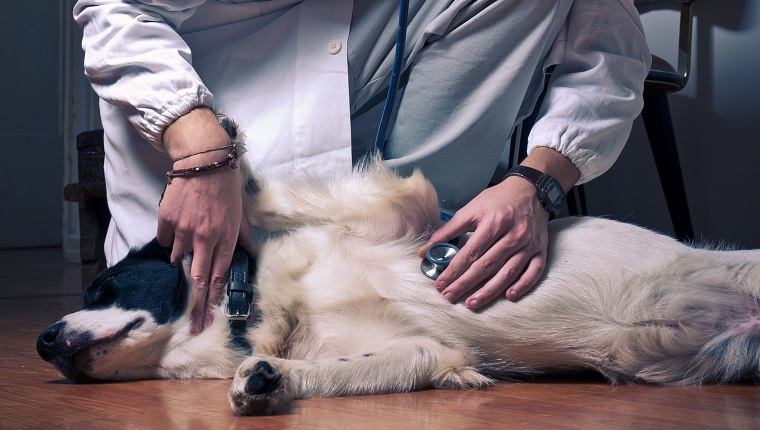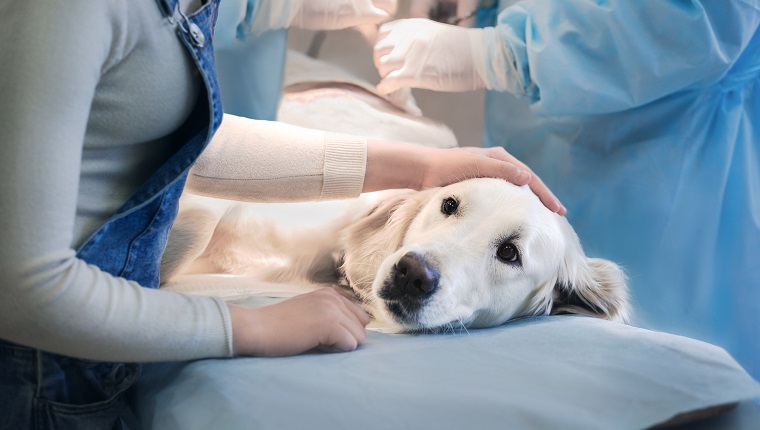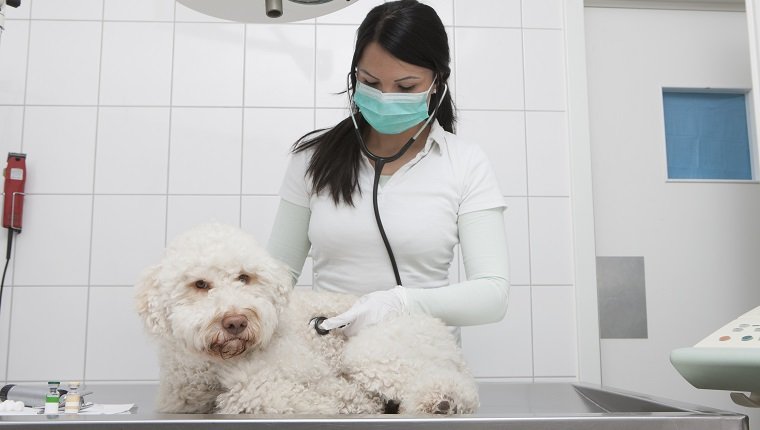Aspiration pneumonia in dogs happens when the lungs become inflamed or infected from inhaling foreign substances, including vomit and regurgitated food or fluid such as gastric acid.
Acid reflux is one possible cause of the condition in dogs. However, there are other causes, including muscular disorders that affect the esophagus, obstructed airways, or bacteria.
If you see symptoms in your dog, then you must seek veterinary treatment. The condition can be life-threatening, especially if oxygen flow to the airways is reduced or cut off. Here’s what you should know about the symptoms, causes, and treatments for aspiration pneumonia in dogs.
Symptoms Of Aspiration Pneumonia In Dogs

Symptoms of aspiration pneumonia in dogs will appear in the respiratory system and generally affect breathing. If breathing becomes too difficult, then you may see signs of oxygen deprivation.
Dogs who show symptoms require immediate medical attention.
Here are a few of the symptoms that appear in dogs with aspiration pneumonia:
- Coughing
- High fever
- Difficulty breathing
- Difficulty swallowing
- Lethargy
- Runny nose
- Nasal whistling or wheezing
- Irregular breathing
- Dehydration
- Weight loss or anorexia
- Mood changes
- Frequent regurgitation
- Bluish skin
- Weakness
- Collapse
Causes Of Aspiration Pneumonia In Dogs

Aspiration pneumonia in dogs can be caused by abnormalities in the pharynx, as well as neuromuscular disorders that affect the ability of muscles in the respiratory system to function properly.
Enlargement of the lower esophagus due to regurgitation can also lead to this condition. Acid reflux is a known cause of frequent regurgitation.
Rarely, an incorrectly placed feeding tube can cause aspiration pneumonia, as well.
Other possible causes include exposure to general anesthesia, deformities such as cleft palates, or diseases that affect the esophagus.
Sometimes when dogs are given medication too quickly to properly swallow, they may aspirate and develop the condition. It’s important to administer oral medication at a pace that a dog can handle.
Treatments For Aspiration Pneumonia In Dogs

Veterinarians may attempt to treat aspiration pneumonia in dogs by removing the foreign material from the lungs that’s causing the problem. They can do this through suction or other means.
Furthermore, vets may give oxygen to dogs in severe cases, and dogs who suffer from dehydration will likely need intravenous fluids. Some dogs may also benefit from a humidifier to keep the air moist as they recover with plenty of bed rest.
Some cases may be life-threatening. If this is the case for your dog, then they may need hospitalization for several days to recover. Dogs who suffer from paralysis of the esophagus may take longer to recover.
Generally, if there’s an underlying cause of the aspiration pneumonia, such as acid reflux or other diseases, vets must treat those too. Vets may prescribe antibiotics or antiemitics to further help with these conditions.
Dogs will need follow up vet visits additionally monitor the progress of recovery, and they should remain hydrated and monitored to make sure the condition doesn’t return.
Has your dog ever suffered from aspiration pneumonia? How did you treat it? Let us know in the comments below!









